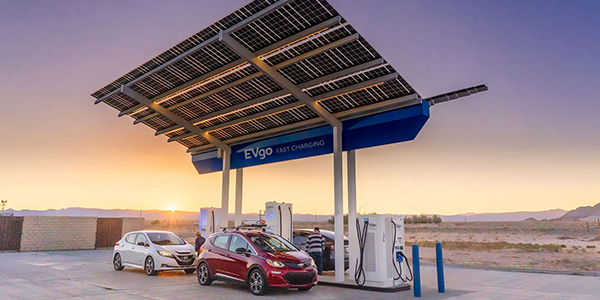About one in five Californians who bought a plug-in electric vehicle between 2012 and 2018 later decided to discontinue their PEV ownership, according to a new study that identifies potential barriers to widespread adoption of electric vehicles.
“For the market share of plug-in electric vehicles to continue to grow and reach 100% of new vehicle sales, adopters of the technology, who initially buy PEVs, will need to continue choosing them in subsequent purchases,” said the study authors, Scott Hardman and Gil Tal with the Plug-in Hybrid & Electric Vehicle Research Center at the University of California, Davis.
“It should not be assumed that once a consumer purchases a PEV they will continue owning one,” Hardman and Tal concluded.
The findings were published online this week in Nature Energy.
The behavior of electric vehicle owners is a hot topic for researchers. Among recent studies is a 173-page report from Tal and other researchers at the Plug-in Hybrid & Electric Vehicle Research Center. The study included installing data-logging devices on all cars in 424 participating households.
The report, released last week, is titled “Emerging Technology Zero Emission Vehicle Household Travel and Refueling Behavior.” It was funded by the California Air Resources Board (CARB) and California Energy Commission.
Rethinking PEVs
In the study, Hardman and Tal said the question of why people initially decide to buy a PEV, or opt not to do so, has been the subject of extensive research.
But researchers have focused less attention on reasons for discontinuing PEV ownership, they said. Plug-in electric vehicles include plug-in hybrid electric vehicles and battery electric vehicles.
To answer those questions, Hardman and Tal turned to California residents who bought a PEV between 2012 and 2018, and who had participated in the researchers’ previous surveys on PEV ownership. The PEV owners were recruited with the help of CARB, which sent invitations to participate in the survey to people who applied for a California Clean Vehicle Rebate.
In a follow-up survey, conducted in December 2019, people who completed previous questionnaires were asked whether they would continue owning a PEV.
Among 1,727 PEV buyers included in the analysis, 19.5% of battery electric vehicle owners and 20.1% of plug-in hybrid owners no longer owned any plug-in vehicles, the study found.
Those numbers were similar if results were weighted to correspond to market distribution of PEV models: 18.1% of battery electric vehicle owners and 20.1% of plug-in hybrid owners had discontinued PEV ownership.
Results varied depending on the model of plug-in vehicle that was initially purchased.
Among car owners whose original PEV was a Tesla, 11% no longer owned a PEV; the figure rose to 25% for Toyota and 37% for Fiat.
Compared to people who continued owning a PEV, those who ditched their plug-in vehicles were younger, had lower household incomes and were more likely to be women. A greater percentage of people who discontinued PEV ownership were renters or lived in attached housing such as a townhouse or duplex.
People who quit owning a PEV drove fewer miles per year and had shorter commutes than those who continued ownership, the study found.
Discontinuing ownership was linked to having fewer cars in the household as well as being dissatisfied with charging convenience. But the study did not find a link between vehicle range and a person’s decision to discontinue PEV ownership.
The authors said that “intuitively makes sense.”
“The way in which a PEV is charged has not changed, whereas vehicle range has been increasing since [plug-in hybrids and battery electric vehicles] were introduced,” they said.
Another View
Joel Levin, executive director of Plug In America, said that in contrast to the findings of the UC Davis researchers, 96% of EV owners who participated in a Plug In America survey said their next vehicle would likely be electric.
The survey of more than 4,000 EV owners was conducted in late 2020. Plug In America is an advocacy organization for plug-in vehicle drivers.
And in a AAA survey of 1,090 PEV owners in October 2019, 96% of participants said they would buy or lease another electric vehicle the next time they shopped for a new car.
In an email to NetZero Insider, Levin noted that PEV owners in the UC Davis study had purchased their vehicles between 2012 and 2018, when the range for EVs was 60 to 80 miles.
Most all-electric vehicles today have a range of 250 to 400 miles, he said.
Improvements have also been made in terms of the convenience of EV charging, said Levin, who noted the Biden administration’s proposal for substantially increasing the nation’s charging infrastructure.
“As the market and infrastructure continue to grow, many of the issues that EV drivers may have faced over the past decade are just not relevant today,” Levin said.




